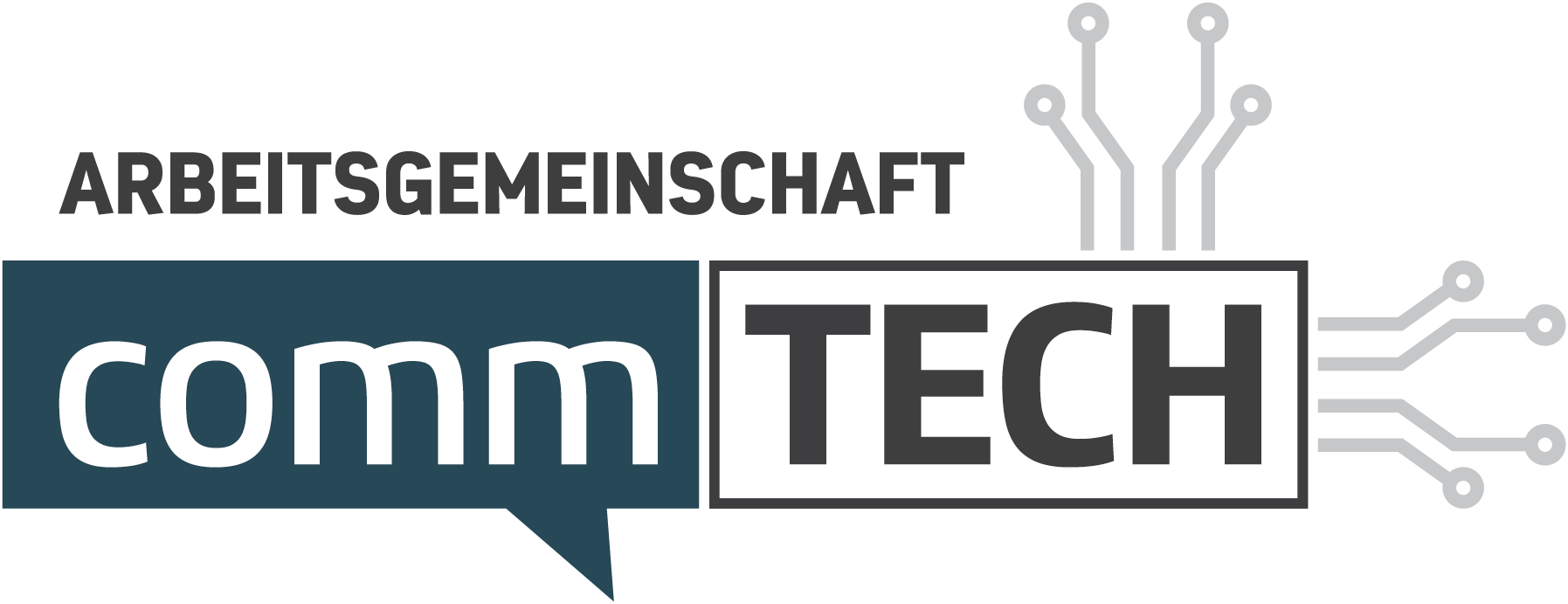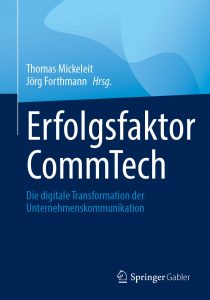- 27. December 2023
- Posted by: Die Redaktion
- Category: BEST PRACTICES

With AI, we are not at the peak of a hype, but only at the beginning of a development

Reinhard Karger (1961), M.A., studied theoretical linguistics and philosophy in Wuppertal, was an assistant at the Chair of Computational Linguistics at Saarland University, moved to the German Research Center for Artificial Intelligence, DFKI, in Saarbrücken in 1993. He has been company spokesman for DFKI since 2011. Reinhard Karger has been working for 35 years on theoretical linguistics and artificial intelligence, the philosophy of consciousness, digital innovation culture and the history of science.
AG CommTech: Bill Gates has compared the development of Large Language Models with the invention of the steam engine, electricity or the Internet. How do you view this as a technology historian?
Reinhard Karger: Chat GPT is currently the most popular AI application, GPT stands for Generative Pretrained Transformer, but this resolution is young. GPT is the well-established abbreviation – in the USA – for General Purpose Technology, i.e. all-purpose technology that can have an impact on the entire economy and has the potential to drastically change societies through its effects on existing economic and social structures (see Wikipedia). That’s exactly what Bill Gates says, and he’s right. But AI is more than testing and training LLMs, and we are not at the peak of a hype, but at the beginning of an AI-supported development that is certainly not without social risks, but opens up opportunities for us to achieve much more with knowledge. That education can open up new dimensions in perspective, because every question of knowledge asked by every person at any time can be answered by a machine in a technically and factually reliable manner. If everyone can be smarter faster, then we could achieve a pro-social level of innovation and – to get a bit pathetic – we could stabilize (multi-)cultural peace and hopefully globalize social justice.
AG CommTech: 75% of communication managers see AI as an opportunity to improve their work. What skills do we need in communication and perhaps also in society for dealing with artificial intelligence?
Reinhard Karger: AI systems classify, bring something under a term. This is helpful in production or radiology, facilitates quality assurance during the final inspection, improves diagnosis and reduces the workload of workers or doctors. Humans are often faced with the task of having to get to the heart of something and use the productive power of imagination that machines do not have. But the machine is capable of evaluating mass data, finding patterns and anomalies in millions of documents that humans could not analyze individually or as a team. Machines thus create a basis that people can use for the meaningful creation of ideas. But as with any tool, you need to acquire the skills to be able to use it with pinpoint accuracy. This begins with an unagitated, opportunity-oriented openness to technology combined with a culturally rich and passionate search for better solutions. To achieve this, we do not need overbearing regulation, but well-founded rules, not marketing-driven actionism, but perspective and goal-oriented application. Not opportunism, but a sense of opportunity. Not haste and rushing, but information competence and excellence. From my perspective, AI is a new cultural technology and AI literacy – self-taught or organized – should be a personal and societal concern.
AG CommTech: What do communications managers need to do today to take full advantage of AI? In your opinion, is there a shortcut to AI?
Reinhard Karger: The shortcut that opens up the benefits of AI for companies, and even more so for communication managers, is digitalization. I hope that’s not too sobering. AI solutions are like the pedals on a bicycle. You can roll without it, you can cycle with it, but digitalization is like the bicycle chain. Well, it’s all about the prospects for communicators and they are extremely encouraging. All design tools become more effective: more relevant texts, better images and graphics, more elegant and accurate management of playout channels and customer relationship management, community building becomes more dynamic, corporate voices more affordable, animations less expensive, machine text translation is a blessing for internal and external corporate communications. The specific application portfolio is extensive. And it is not a disadvantage that many applications are free. Interest helps. Trial and error is enlightening, and nothing replaces personal experience.
AG CommTech: What are the foreseeable development steps that we can expect from the LLMs?
Reinhard Karger: Over the past 5 years, the quality of results has grown in step with the size of the language model. The scaling hypothesis is still valid, but not for long. Doubling the number of parameters no longer means a proportional increase in performance. That is why working on LLMs is no less meaningful, because the linguistic quality produced is astounding. What is needed now, however, are hybrid approaches that combine the advantages of generative AI with symbolic AI, which is capable of understanding content and deductive derivation from upstream or first principles. This hybrid AI opens up the space of reasons for human-machine interaction, and we could move from interaction to an actual human-machine discourse in which machine performance and human talent shake hands without having to be on the same level. The aim of these neuo-symbolic or neuro-explicit approaches is to create AI systems that deliver comprehensible results in the dimensions of reliability, transparency and explainability. But these are current research topics and not applications at the moment.
AG CommTech: Despite all the enthusiasm for technology, the use of AI also brings with it responsibility. The DRPR has made recommendations in this regard. How must users of AI behave in order to live up to their responsibilities?
Reinhard Karger: I am a great friend of transparency, labeling, truthfulness and responsibility. The central point is authorship. We need to promote a clear understanding that a person takes responsibility for a message. Perhaps that is not always possible. So if a real-time report is published that no human eye has seen, that is not fatal, but it should be visibly and prominently marked. For me, ZDF has formulated the most important point very succinctly: “The two-source principle applies, whereby generative AI itself does not count as a source”.(AI principles of ZDF, 23.10.2023)
Because that’s what matters. AI confronts all users with two requirements: firstly, “think twice” and secondly, “check the source”. This has been the view in science for centuries and that is why we will hopefully develop from a knowledge society to a science society. More reflective, more informed, more efficient and more productive, but they have to be diligent. It’s not convenient, but it’s insightful.

